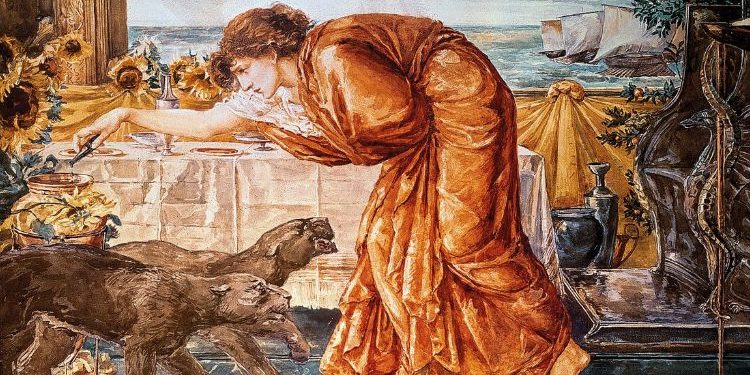which excerpt from the odyssey best shows that the ancient greeks greatly valued the idea of home?In the epic poem “The Odyssey,” attributed to the legendary ancient Greek poet Homer, the concept of home is intricately woven into the narrative, reflecting the profound importance that the ancient Greeks placed on the idea of home. This timeless masterpiece delves into the adventures of Odysseus as he strives to return to his homeland after the Trojan War. Amidst the heroic exploits and mythical creatures, there are poignant excerpts that vividly illustrate the immense value the ancient Greeks attributed to the notion of home.
The Epitome of Greek Hospitality: Xenia
Xenia, a sacred concept in ancient Greek culture, encapsulates the reciprocal relationship between hosts and guests. In “The Odyssey,” we witness Odysseus navigating through various lands, experiencing both warm hospitality and treacherous encounters. This aspect of the epic underscores the Greeks’ deep-seated belief in the importance of home as a sanctuary, a place where one is embraced and protected.
Penelope’s Unwavering Devotion: A Testament to Marital Bond
In the character of Penelope, the faithful wife of Odysseus, we find a portrayal of unwavering loyalty and love. Her steadfast commitment to waiting for Odysseus’ return epitomizes the sanctity of the marital bond and the significance of the home as a symbol of emotional security.
Ithaca: The Symbolic Heart of Home
Ithaca, Odysseus’ homeland, serves as the symbolic heart of the epic and reinforces the Greeks’ deep connection to their native land. The challenges faced by Odysseus on his journey amplify the notion that the journey back to one’s home is a transformative and meaningful endeavor.
Nostos: The Poignant Theme of Homecoming
The term Nostos, denoting the homecoming journey, is a recurring motif in “The Odyssey.” This theme resonates with the Greeks’ profound respect for the cyclical nature of life and the inevitability of returning to one’s roots. Nostos not only encapsulates Odysseus’ physical return but also his spiritual reconnection with his homeland.
The Contrast of Home and the Unknown: Cyclops and Circe’s Isle
As Odysseus encounters the Cyclops and visits Circe’s magical isle, the stark contrast between the familiarity of home and the unknown becomes evident. These episodes serve as metaphors for the Greeks’ fear of the unfamiliar and their reverence for the stability and comfort offered by the hearth and home.
The Underlying Theme of Perseverance
The challenges and trials faced by Odysseus throughout his journey highlight the Greeks’ admiration for perseverance. The tenacity exhibited by the hero mirrors the resilience required to safeguard one’s home and the determination to overcome any obstacles hindering the return to it.
The Cultural Significance of the Home
In ancient Greek society, the home was not merely a physical dwelling but a cultural cornerstone. It was the hub of familial bonds, religious practices, and communal gatherings. “The Odyssey” reinforces the idea that the home was not just a structure but a sacred space embodying the essence of Greek identity.
Conclusion
In conclusion, “The Odyssey” provides profound insights into the ancient Greeks’ veneration for the concept of home. Whether through the lens of hospitality, marital devotion, symbolic landscapes, or the overarching theme of Nostos, the epic poem showcases the multifaceted aspects of the Greek perspective on the sanctity of home. By understanding and appreciating these nuances, we gain a richer comprehension of the values that shaped ancient Greek civilization.



